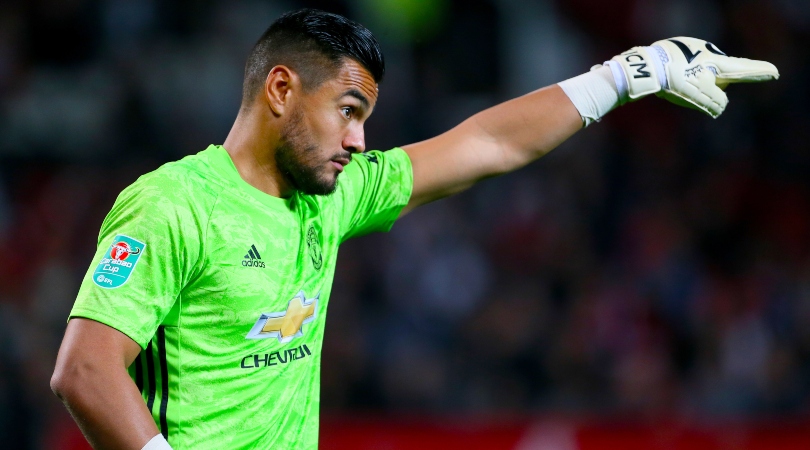The League Cup has a strength that the FA Cup doesn't – an ability to adapt to survive. Here's how to save it
A new European competition could cause problems for the EFL Cup's delicate popularity. So what reforms could be brought in?

As of next season, the League Cup will suffer a demotion in status which it can ill afford. While the competition will still offer a back door into Europe, the 2020-21 winners will only qualify for the new Europa Conference League.
It’s important not to prejudge a tournament, of course, but anyone expecting anything other than an underwhelming experience is probably being optimistic. The Europa Conference League group stage (catchy!) will comprise 32 teams, 10 of which will be losers from the final qualifying round of the Europa League. That provides an unappealing vision of the competition’s standard.
EXPLAINED UEFA’s new Europa Conference League competition will absolutely not get you excited
The effect on the EFL Cup is tenuous, but still real enough. If it found it difficult to capture the imagination of the bigger clubs in the past, now it will find it much harder, with the threat of that apathy spreading further down the table. Not unreasonably so, either, because meagre prize money and the prospect of playing modest opposition is not a great incentive – certainly not enough of one to risk falling a few places in the Premier League.
Such disinterest has typically manifested in a fairly uniform way, with mix-and-matched teams representing the bigger clubs until the quarter or semi-final stage at which point, with a trophy in sight, their attitude towards team selection begins to change. Out go the reserves, in come the first-teamers.
That is what has probably done the greatest damage to the tournament’s reputation. It’s become something that teams win almost by accident now and the kind of success which, unless highly unusual, just doesn’t endure in the way that it should. Most people will remember Manchester City winning last season, and maybe the year before that, but most would have to pause for thought to recall the 2017 final or anything which happened in the years prior.
There is no perfect solution for the Football League, but they’ve shown themselves capable of making successful changes in the past. The end of the two-legged ties ahead of the semi-finals created a more streamlined tournament, for instance, and, from 2018, the straight-to-penalties format has definitely dosed it with some appealing drama.
Get FourFourTwo Newsletter
The best features, fun and footballing quizzes, straight to your inbox every week.
People enjoy it now, possibly even look forward to it in a way which they previously didn’t. So perhaps with those precedents, which prove that it needn't have a rigid shape, further steps could be taken to develop the competition's individuality?
Doing so could involve applying an age limit to the teams fielded by Premier League sides. If it’s accepted that the overall aim should be to encourage progress by lesser teams, weakening the hand of the bigger clubs is a natural step – an essential one, perhaps, given the depth of their squads and the array of mature talent at their disposal.
Imposing a restriction on – for example – players over the age of 23, would have the happy effect of creating a guaranteed stage for developing talent. Moreover, by preventing clubs from loading their cannons from the semi-finals onwards, the opportunity would exist for peripheral squad members to take continuous part in a proper tournament campaign, acquiring some invaluable education along the way and perhaps even wining a trophy too.
Maybe it's legislation that many clubs would actually welcome, given that the burden on their senior professionals continues to grow, as football's calendar becomes ever more congested.
Perhaps. But those would be supplementary positives behind a grander aim. The EFL should be using this as a prompt to identify what it is that gives cup competitions their appeal. The answer is a range of factors, of course, but - with absolute certainty - the great enemy of knockout football is predictability. For obvious reasons, that’s a problem which has only grown as the disparities in the game have widened.
So the EFL have an opportunity that the Football Association don’t. The FA Cup’s history and tradition make it virtually impervious to meaningful change and, as a result, have left it brutally exposed to football’s inequalities. With the league cup under threat, though, it has the chance to shift its shape again, pursuing a different sort of relevance and perhaps taking an innovative approach to retaining interest in these domestic trophies.
While you're here, why not take advantage of our brilliant subscribers' offer? Get the game's greatest stories and best journalism direct to your door for only £9.50 every quarter. Cheers!
NOW READ...
PREVIEW Football Manager 2020: three new features we love ahead of Beta release
QUIZ Can you name the players who've scored 10+ Premier League goals for Chelsea?
GUIDE Premier League live stream best VPN: how to watch every game from anywhere in the world
Seb Stafford-Bloor is a football writer at Tifo Football and member of the Football Writers' Association. He was formerly a regularly columnist for the FourFourTwo website, covering all aspects of the game, including tactical analysis, reaction pieces, longer-term trends and critiquing the increasingly shady business of football's financial side and authorities' decision-making.

